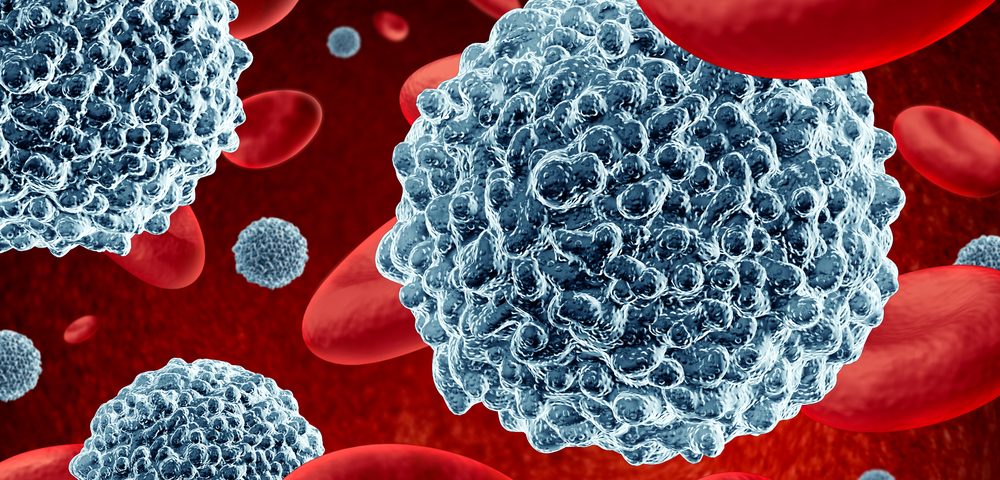A specific gene regulator called RUNX1 promotes the survival and proliferation of lymphoma cells even when expressed at normal levels or with normal activity, according to the study “Addiction to Runx1 is partially attenuated by loss of p53 in the Eµ-Myc lymphoma model,” published in the journal Oncotarget.
RUNX1 is a transcription factor involved in the normal production of blood cells by regulating the expression of a number of genes. Mutations in the RUNX1 gene, leading to an increase in RUNX1 expression, are among the most common in the development of leukemias. Now, researchers at the University of Glasgow demonstrated that a cancer not linked to changes in RUNX1 expression is highly dependent on RUNX1 to survive.
Researchers, led by Professor James Neil, used a mouse model that spontaneously develops Burkitt lymphoma (due to a mutation in the MYC gene, a gene that regulates cell division and is often overexpressed in Burkitt lymphoma). Deletion of the RUNX1 gene from these mice led to a significant reduction in cell growth. In addition, lymphoma cells without the RUNX1 gene were highly sensitive to chemotherapy, compared to lymphoma cells with normal RUNX1 expression.
“Many genes are altered or damaged when a healthy cell progresses towards cancer, leading to uncontrolled growth and the ability to survive when normal cells would die,” Professor Neil, a professor of Molecular and Cellular Oncology at the Institute of Infection, Immunity and Inflammation, and the study’s senior investigator, said in a press release. “Understanding how these faulty cancer genes collaborate with each other to alter the cell’s behaviour helps us find the cancer’s ‘Achilles’ heel’. We found that blocking the RUNX1 gene has a knock-on effect on the ability of many other cancer genes to drive this type of lymphoma forward.”
The researchers are currently collaborating with scientists in the U.S. who have developed a RUNX1 inhibitor that is showing promising results at killing cancer cells in a selective manner.
“While this concept for treating lymphoma is still in the early stages, it is certainly very promising,” said Dr. Alasdir Rankin, director of Research at Bloodwise. “The next step will be for further lab studies to understand the effects of blocking RUNX1 and then to see how effective and safe a [this] drug is at treating patients in clinical trials. Precision treatments that target specific characteristics of cancer cells have the potential to be far more effective than traditional chemotherapy alone, reducing life-threatening side effects and the chance of relapse.”
RUNX1 and MYC mutations are also associated with other types of cancer, such as breast, stomach, cervical, colon, and lung cancers, and these findings may benefit patients with those malignancies.
“Studies like this, helping us understand exactly how the RUNX1 ‘molecular switch’ works, form the foundations of future research to develop better, more effective treatments for people with cancer. RUNX1 turns on and off certain genes inside cells, and other research has already shown that this switch is faulty in a number of different types of cancer,” added Dr. James O’Malley, Cancer Research UK’s research information manager.


